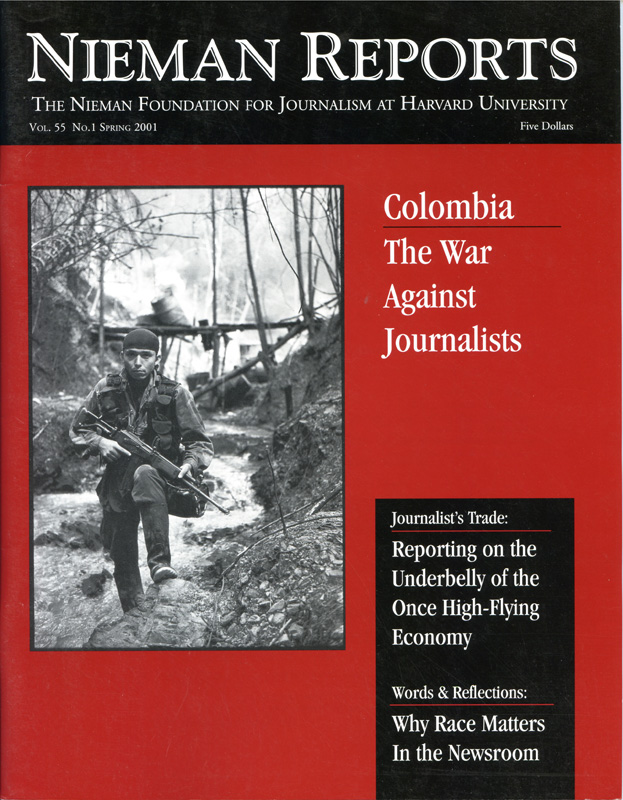At the Savannah Morning News, we are taking a not-so-revolutionary approach to diversifying our newsroom. In fact, in keeping with Savannah’s fascination with the past, we’ve tapped history to better prepare us for the future.
Forty and 50 years ago, reporters at the Morning News followed an apprenticeship program. They started as copy boys, advanced to obits, honed their craft on the rewrite desk, then moved to the cops beat. Today, most journalists come from universities. They polish their talents at internships and at small papers. They work their way up by bouncing around the country, a year covering police here, followed by a couple of years covering the school board there. This modern system produces topnotch journalists with solid reporting skills. They are often fine writers and good storytellers, but their short stays don’t give them much opportunity to know the communities and people they cover.
Here in Savannah, we now take people from various walks of life and place them in a month-long program designed to transform novice writers into aspiring newspaper reporters. In creating this new type of apprenticeship program, we built on an idea from the past by tailoring it to meet future needs.
We call it the Neighborhood Newsroom.
The idea is to train correspondents for our five weekly neighborhood publications, called Closeups. From there, the writers can contribute to sports, business and entertainment sections of the daily paper, as well. Eventually, they are considered for staff jobs. And some find work at other newspapers. A former apprentice and freelancer is now a staff writer at The Gazette in Colorado Springs, Colorado.
RELATED ARTICLE
“Changing a Newsroom’s Complexion”
– Margaret BaileyWe look for people who live and work in neighborhoods that are underrepresented in our newsroom and in our newspaper’s usual circulation. We find candidates through church groups, civic groups, and area colleges. About two dozen people applied for the initial program. They had to complete a lengthy application, which included an essay and two short-answer questions. Ten people were invited to participate and nine accepted, including businesswomen, teachers, students and even a former pipefitter. All of the participants were women, and six were black. (The racial breakdown of the community potentially served by the newspaper is just about evenly divided, black and white, while the newsroom, with 68 employees, has only five minorities on staff.)
For two hours a night, four nights a week, they were given a mixture of hands-on activities and lectures led by editors from the Morning News. Four of the graduates of the Neighborhood Newsroom now are regular contributors to Morning News publications, meaning they write at least one story a week. Three are occasional contributors, and two have left the area.
Participants are exposed to many facets of journalism. In the first session, Civic Editor Tuck Thompson led a lively session on libel laws and other legal issues that engaged participants but, more important, made them realize the ramifications of their reporting and stories. Classes were augmented by visits from Morning News reporters. Their real-life stories added emphasis to the classroom lectures and activities.
Participants had to put into practice what they learned. The program opened with them interviewing local elected officials and writing about their goals for the coming year. Other stories included a preview of a Savannah Sand Gnats baseball game, a feature on a neighborhood trend, and a news article on a Port Wentworth City Council meeting. Each story forced participants out of their comfort zones. As the sessions progressed, the writers became more confident and self-assured. And that showed in their writing. They also were subjected to stringent editing and frank evaluation that was tempered with helpful suggestions for improvement. There was plenty of support, too. Each participant was paired with a Morning News editor who served as a mentor.
No doubt graduation from the program won’t earn participants a spot in the Savannah Morning News newsroom. There are still many writing hurdles to overcome, including wordiness, clarity and focus. The most common one is the challenge of finding the story. Often it is buried under layers of preparation and set-up. Once cleared away, the stories can then unfold smoothly. However, these problems can be found among even the more experienced writers.
Besides the mechanics of writing, the biggest obstacle Neighborhood Newsroom graduates confront is retaining dedication to the craft. Writing is difficult, and writing well can be painful, particularly when editors offer biting criticism. Learning to take suggestions and use them to improve stories isn’t easy.
Some graduates slip away, never to be seen again. Others offer a few stories, then gradually fade away. A few continue to submit stories and build relationships with editors and other reporters. They offer story ideas, rewrite articles, and accept assignments. These are the ones we hope will mature into Morning News staffers.
The second class of Neighborhood Newsroom begins in May. Some improvements are in the works, many of which were suggested by our first graduates. Among the changes we intend to implement are finding ways to incorporate reporters into the mix and providing more hands-on activities and fewer class lectures. We also like to encourage and find men who want to participate.
We’ll know we’ve been successful when we have a Neighborhood Newsroom graduate covering city hall and another editing those stories.
Steve Corrigan is editor of Closeups section of the Savannah Morning News.


